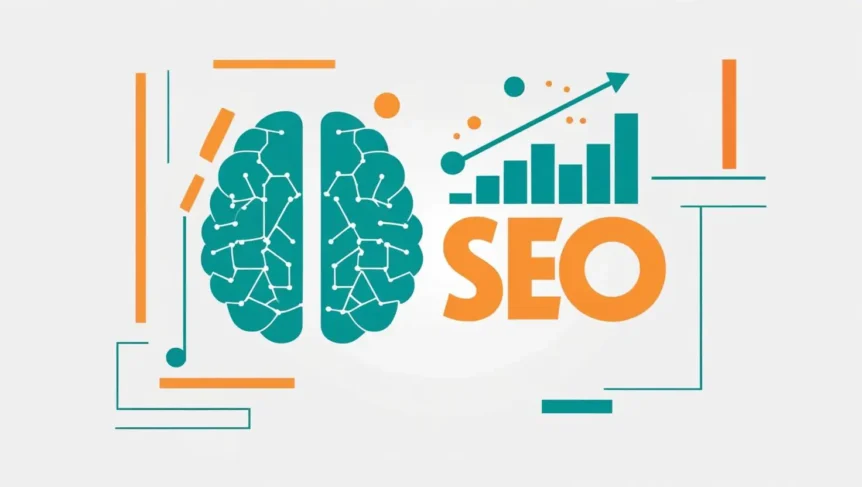Search Engine Optimization (SEO) has undergone significant transformation in recent years, but 2025 marks a tipping point. As artificial intelligence continues to shape how people search and how search engines interpret content, traditional SEO practices must adapt or risk becoming obsolete.
Whether you’re a content creator, marketer, or business owner, understanding how SEO has changed—and what remains foundational—is crucial to staying relevant and competitive.
In this post, we’ll explore:
- The evolution of SEO in 2025
- Foundational SEO elements that still matter
- How to optimize for AI-powered search engines
- The rising importance of brand awareness
- Actionable tips to increase search engine traffic today
SEO in 2025: Key Changes
1. Search Has Become Conversational and Intent-Driven
Search engines in 2025 are powered by advanced large language models (LLMs), capable of interpreting natural language queries with greater nuance. Instead of typing keywords like “best SEO tools 2025,” users now ask full questions:
“What are the best SEO tools for small businesses in 2025?”
This shift means search engines prioritize intent over keywords. Google’s Search Generative Experience (SGE), Microsoft Copilot in Bing, and AI-powered search layers on platforms like Perplexity and You.com are delivering summarized, AI-generated answers above traditional blue links.
2. Zero-Click Results Are the Norm
With AI overviews, rich snippets, featured answers, and visual search, zero-click searches are increasing. Users often get the information they need without clicking on a link. For brands, this means your content must be:
- Highly authoritative
- Structured clearly
- Optimized for snippets and summaries
3. AI Is Now Your Competitor—and Your Tool
AI can generate answers to complex queries using data from multiple sources, reducing reliance on individual websites. But it also means your content must be considered a reliable source by these AI systems.
On the flip side, AI SEO tools are now essential in content planning, optimization, keyword clustering, SERP analysis, and predictive performance.
Foundational SEO: What Still Matters in 2025
Despite these changes, the core principles of SEO still hold strong:
1. Technical SEO
Your website must be:
- Fast: Load times under 2 seconds
- Mobile-First: Responsive design and touch-optimized
- Secure: HTTPS is mandatory
- Structured: Use clean URLs, logical hierarchy, and schema markup
2. On-Page SEO
Even in the AI age, Google still crawls and indexes pages. Ensure:
- Keyword relevance: Use natural language around topics, not just keywords
- Content structure: Headers (H1-H3), bullet points, short paragraphs
- Internal linking: Help search engines understand relationships between pages
3. Content Quality
The E-E-A-T framework (Experience, Expertise, Authoritativeness, Trustworthiness) has become even more important. Google and AI assistants prefer content written by or attributed to real experts.
How to Get Search Traffic in the AI Era
1. Optimize for AI Overviews
AI summaries pull content from trusted sources. To be included:
- Use clear, concise answers to common questions
- Incorporate structured data and schema
- Build topical authority on your site (clusters of content on related subjects)
2. Answer Long-Tail & Conversational Queries
Users are asking more complex questions. Target these:
- Add FAQs to blog posts and landing pages
- Use tools like AnswerThePublic, AlsoAsked, or ChatGPT to brainstorm queries
- Optimize for voice search: natural tone, concise answers
3. Focus on Topical Authority, Not Just Keywords
Google wants to see breadth and depth of coverage. Create content hubs:
- Cornerstone content: In-depth guides or resources
- Supporting articles: Specific subtopics that link to and from the main piece
This improves crawlability, user engagement, and AI visibility.
4. Leverage First-Party Data and Original Research
AI tools crave reliable sources. Publishing:
- Case studies
- Survey results
- Industry insights
…boosts credibility and link-worthiness.
5. Optimize for Visual and Multimodal Search
Search engines are integrating image, video, and even audio content:
- Use descriptive file names and alt text
- Embed videos with transcriptions
- Optimize YouTube and image SEO alongside text content
Brand Awareness: The New Pillar of SEO
In 2025, brand is a ranking factor. Here’s why:
1. AI Trusts Brands
When LLMs generate responses, they cite trusted and well-known brands more often. A recognized brand signals credibility, reducing the chances of misinformation.
2. User Behavior Signals Favor Brands
Branded searches (e.g., “Ahrefs backlink tool”) and high click-through rates boost SEO rankings. Google interprets them as trust indicators.
3. Backlinks and Mentions Still Matter
But today, brand mentions without links (called “implied links”) are also signals of authority. Being talked about online—even without a direct backlink—boosts visibility.
How to Build Brand Authority for SEO
- Be active on multiple platforms (YouTube, podcasts, LinkedIn, etc.)
- Get featured in media, interviews, and relevant communities
- Run PR campaigns around product launches, research, or events
- Create shareable content: tools, infographics, or interactive resources
Final Thoughts: SEO in 2025 Is About Trust, Relevance, and Real Value
Search engine optimization in 2025 is no longer about gaming algorithms. It’s about earning trust, delivering real value, and building a brand people (and AI) recognize.
To succeed:
- Master the fundamentals: technical, content, on-page SEO
- Create comprehensive, helpful content that solves problems
- Build a visible and credible brand across platforms
- Optimize for human experience and machine understanding
The future of SEO is here. And it rewards those who focus on people first, AI second, algorithms third.
